Living through Hope: Join with the voices of the forest!
at 1-3pm Colombia and México, 2-4pm Chile. 3-5pm Brasil, 6-8pm UTC, 7-9pm London
The Ve’i Ñuu Savi Collective ir “House of the Rain...
Read More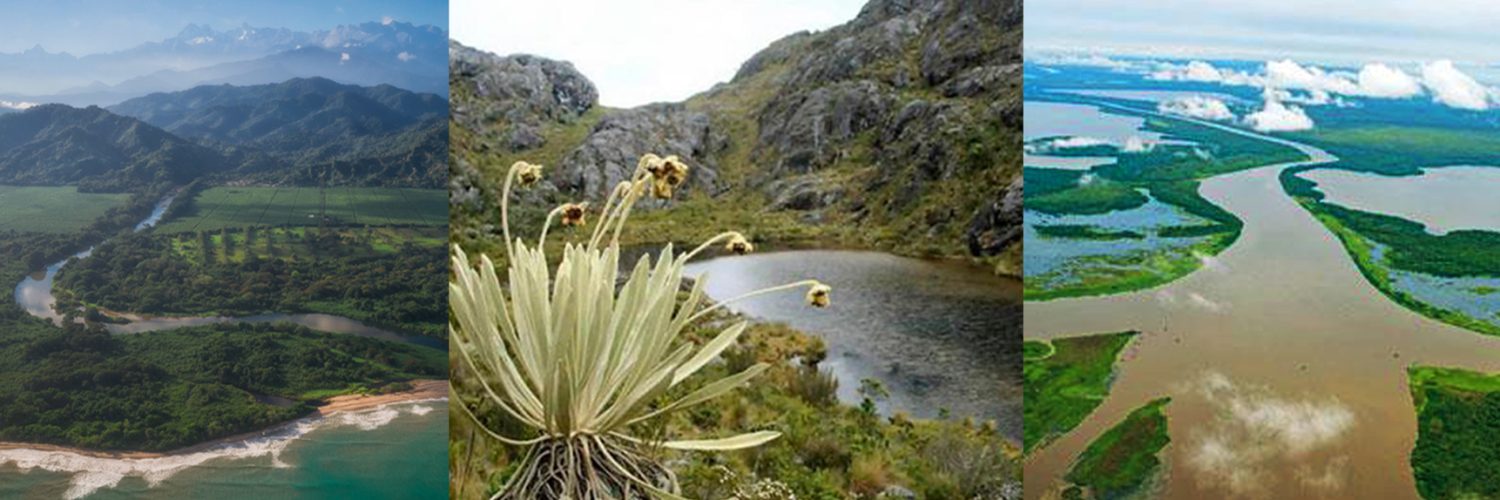
The revitalisation of humanity from biocentric principles comes from ancient times, but is relevant now. By decolonising our thoughts, actions and territories, we can move towards a clear, ethical and self-governing oath for the continuity of humanity and mother earth.
In Colombia, various communities are walking this path – known as “the government of Water”. It is a way to self-govern and can be adopted by greater government entities.
It has its origins in the territories that are surviving, in our native nations and in natural and cultural biodiversity. Today, it enhances the voices of the territories and of our people who continue to care for and defend life in balance with nature, as it was before.
This way of life continues despite the continuous colonising invasion that has been happening for 500 years. It is growing despite the global drive of extractivist economies, capitalism without limits and patriarchy.
We know that if we continue with this system – if we continue destroying mother earth, our common home, then human life, as well as the natural world as we know it will become extinct.
But we can choose to walk a different path – caring for life, caring for water, caring for the soil. We can make decisions for all life through collective governance aligned with nature.
In Colombia, discrimination against indigenous, Afro-Colombian and peasant communities has its roots in the times of conquest and colonisation. These social groups, considered part of a lower social level than whites, were subjugated to slave-like roles from which they had no possibility of participation.
One of Colombia’s communities´greatest achievements was in 1991, when the new political constitution established Colombia as a multi-ethnic and multicultural nation. Now, with the election of a new government, we are seeing a strong political shift towards social and climate justice, social cohesion and nature. Its focus in on the organisation of territory around water and diversification of production to address climate change.
Decolonisation is a movement of emancipation that continues with the greater purpose of caring for all life. It comes from our original peoples, raizales, peasants and mestizo natives, from the city and from the countryside.
In this conversation we will share experiences from different places and situations addressing decolonisation and water governance in Colombia.
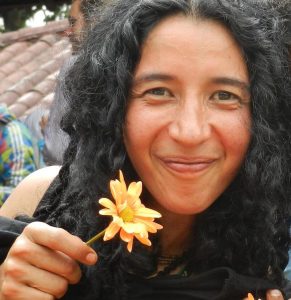 Dennise Dueñas – Kuku
Dennise Dueñas – Kuku
Facilitator – representative Hub Transition Colombia
Graphic communicator and interdisciplinary artist with experience in facilitating collaborative networks, participatory leadership and intercultural environmental education through the living arts. She has taken courses in Permaculture, Deep Ecology, Participatory Leadership, Sociocracy, Evolutionary Education, Sustainable Settlement Design, Transition Training and Heritage Watch. She participates at the local level in the Women’s Consultative Council and in the Municipal Council of Culture. Founder of Casa Maíz, an intercultural community space where Mhysca ancestral wisdom and pedagogical and environmental alternatives for the transition to conscious lifestyles are promoted.
She is a regional member of the Cabildo Mayor Muisca Oriente, the Colombian Ecovillage Network, CASA Colombia and an active member of CASA Latina – Council for Sustainable Settlements of Latin America and the base team of Transition Colombia.
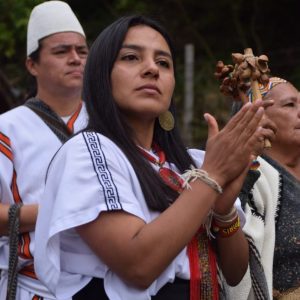 Ati Quigua
Ati Quigua
Speaker
Colombian indigenous Iku leader, researcher, pacifist and environmentalist. She grew up in the Sierra Nevada de Santa Marta where she was trained by the Mamos in the Sé or Sei, Kogui-Iku, which means living in harmony with the cycles and vital processes of nature. Public administrator, Master in Government and Public Policy. She is currently studying for a D. in Political Studies at the Universidad Externado de Colombia. Lecturer and Consultant.
Elected councillor of Bogotá D.C. in three periods where she has obtained multiple achievements, among them the Agreement 347/2008, which defines the guidelines for public water policy, which was adopted by decree 485 of 2011. Agreement 194/2010, which promotes rural regional integration through farmers’ markets
regional rural integration through peasant and indigenous markets for the central region. Among other initiatives.
She was the Indigenous Commissioner for Peace in Colombia. Promoter of respect for human rights rights and the rights of nature. Winner of the International Prize
Daniele Po Award 2016, which has an international tradition of recognising women and associations working for the environment and human rights.
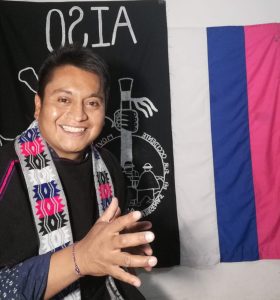 Didier Chimuskay
Didier Chimuskay
Speaker
Native Mysak, communicator from the local territorial process and from the Movement of Indigenous Authorities of the South West. Former Secretary General of the Cabildo of Guambia, former vice-governor of the Misak Cabildo in Bogotá, Co-founder of the Association of Indigenous Media of Colombia AMCIC, Founder of the University of the Earth and Memory in Bogotá.
Currently, General Producer of the fourth season of the indigenous television series “Autonomías Territoriales” to be broadcast on public TV channels. Activist on the issue of the Memory of the Peoples, related to the demolition of statues in Colombia. In charge of the campaign “International Day of Memory of the World’s Indigenous Peoples”. Coordinator of the “I Continental Summit of Indigenous Communication of Abya Yala”. Since September 2013, I have participated as a Misak native, communicator and journalist, making the dignity of indigenous peoples visible.
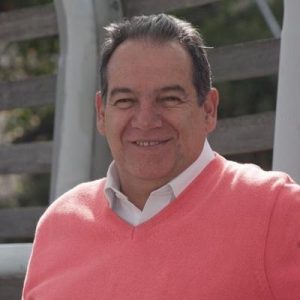 Hernando Gómez Serrano
Hernando Gómez Serrano
Speaker
Psychologist, specializing in environmental sanitation and development. Human Rights Defender, has conducted research on mega-projects, particularly mega-projects of interregional connection in South America, both at the level of infrastructure, roads, railways and the river network. University professor for several decades. International researcher and consultant in the areas of economic, social and sustainable development.
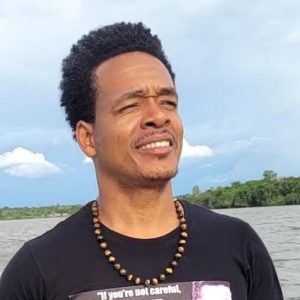 Harrison Cuero Campaz
Harrison Cuero Campaz
Speaker
Professional in Ecology, with specialisation in Environmental Law, Master in Territorial Planning and Environmental Management and PhD in Sustainability with emphasis on Territorial Planning in biodiverse regions. International consultant in capacity building of local communities and construction of Network for the defence of human rights. Member of the Black Communities Process and President of the National College of Ecologists.